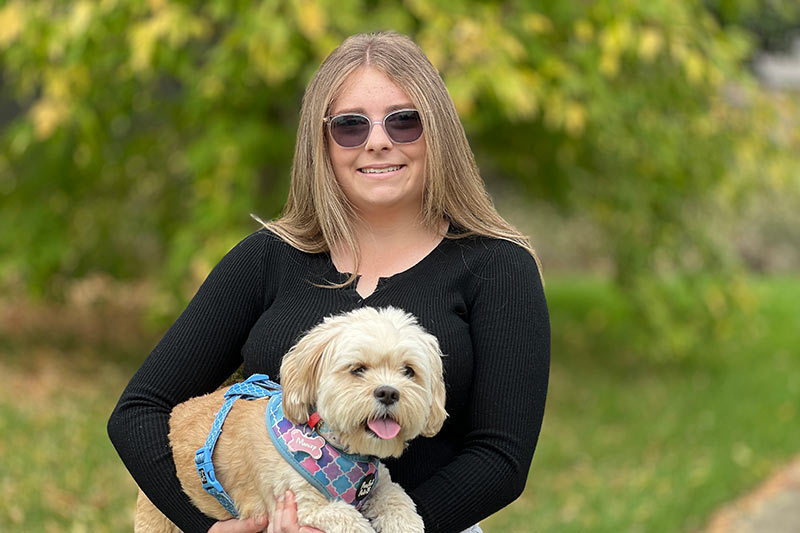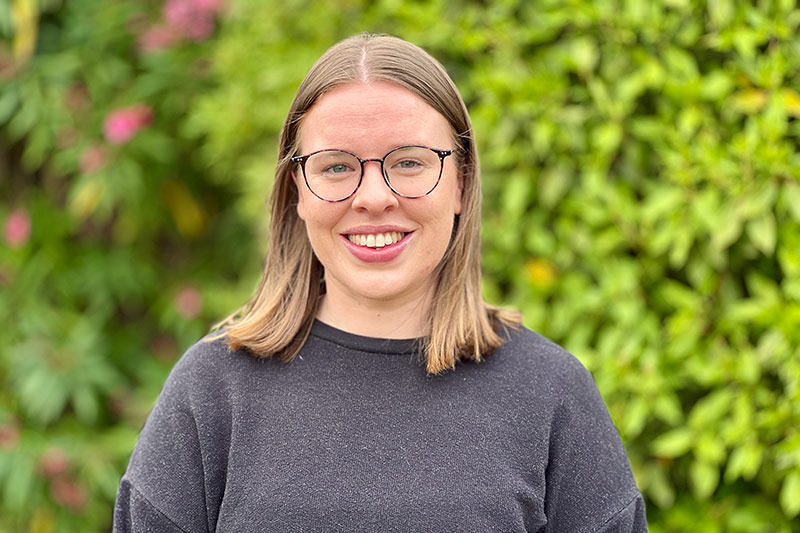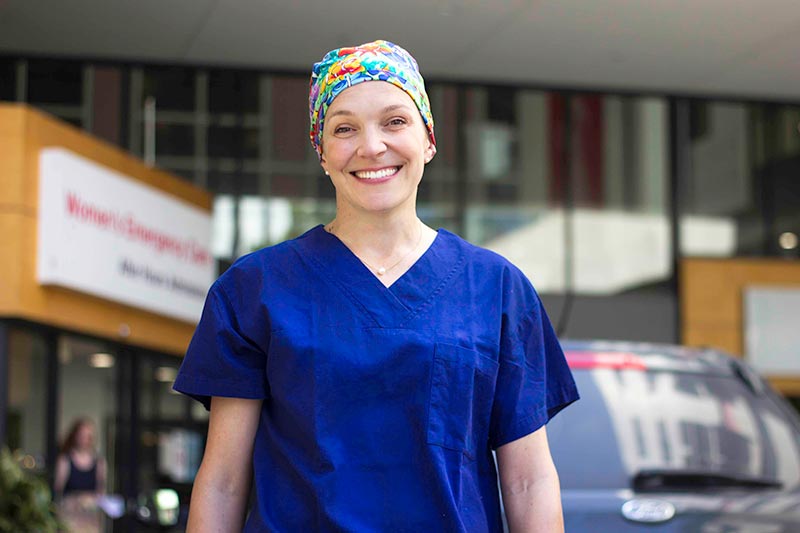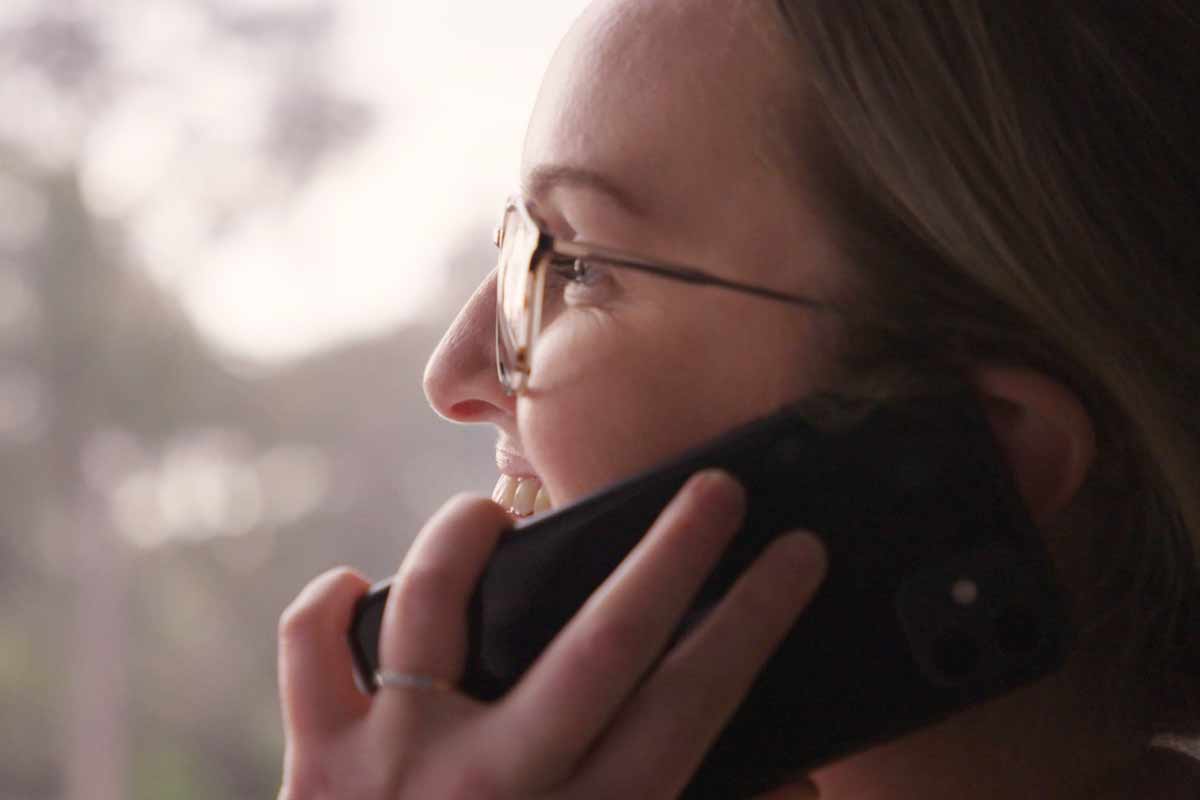Key facts:
- Endometriosis affects one in nine women
- On average it takes seven years to diagnose
I actually had one doctor say I should just wait five years, and then get pregnant and I won’t have to deal with it for nine months.
A 16 year-old girl, treated by the Julia Argyrou Endometriosis Centre at Epworth, is hopeful new research will lead to less invasive ways of diagnosing the condition in young women.
Taya endured pain for four years before she was diagnosed. She initially thought her symptoms were due to bad period pain: She would be nauseous, vomiting and sweating.
The pain would come out of nowhere, leaving Taya barely able to stand or walk. She became too nervous to go on public transport or public places without a parent.
In year nine, the pain was so bad, she had to miss exams.
“The day of her first exam, she came crawling out of her room, and I found her on the floor in the hallway,” Taya’s mum Nicole said.
“I assumed it might have been anxiety due to the first round of exams and she said she was ok to go to school.”
Taya made it to school, but the pain was too severe and she ended up in hospital the next morning. She underwent tests but was eventually discharged without answers.
The teenager said she was often told by health professionals the pain is just part of being a woman.
“There was a lot of that, and I actually had one doctor say I should just wait five years, and then get pregnant and I won’t have to deal with it for nine months,” Taya said.
Her mum Nicole was horrified by the comment.
“I had taken her to this hospital out of desperation and she was told to just have a baby. This is my 15 year-old girl that she’s just said this to.”
The pain led to Taya missing half of the school year last year. She also stopped playing football and netball and missed school camps.
Taya estimates she saw about 20 different health professionals before ending up at the Julia Argyrou Endometriosis Centre at Epworth. There, she underwent a laparoscopy which confirmed she has endometriosis.
The centre has launched the MRI-ENDO study, to see if a non-invasive MRI scan can be used to diagnose the condition in younger women.
The study will focus on people aged 16-25 who are suspected of having endometriosis and are booked in to have a laparoscopy.
Dr Kate Tyson, Director of the Julia Argyrou Endometriosis Centre at Epworth, hopes to find a more patient-friendly way of confirming endometriosis in young women.
“At the moment, the best non-surgical way we can diagnose the disease is a trans-vaginal pelvic ultrasound, which can still be quite invasive for some people,” Dr Tyson said.
“The study will evaluate whether MRI is an effective way to diagnose endometriosis in younger people by comparing the findings of MRI scans with confirmed surgical diagnosis of endometriosis. We hope to find a way that’s more patient-friendly to diagnose the condition, especially in younger women.”
Taya is hopeful the study leads to a faster, less invasive diagnosis for other women.
“It would be good if it didn’t take so long,” Taya said.
“It took a couple of years for a diagnosis and having the surgery to diagnose the endometriosis stops you from doing things for a week, and it’s embarrassing.”
Nicole said before the diagnosis, Taya was told there was noting that could be done, and it was probably anxiety.
“At one stage, Taya was admitted to hospital for five days, and after a colonoscopy failed to identify anything, doctors recommended trying gut hypnotherapy and said we need to get on top of this anxiety.”
She urges other parents to continue to advocate for their daughters to get answers, given endometriosis affects one in nine women.
“Taya at one stage said she thought she was dying.”
“In the end, you know your child better than anyone else, and it is not normal to be in extreme pain, without a clear diagnosis. I kept researching and contacting support groups and asking other people questions until I found the right team that listened,” Nicole said.




